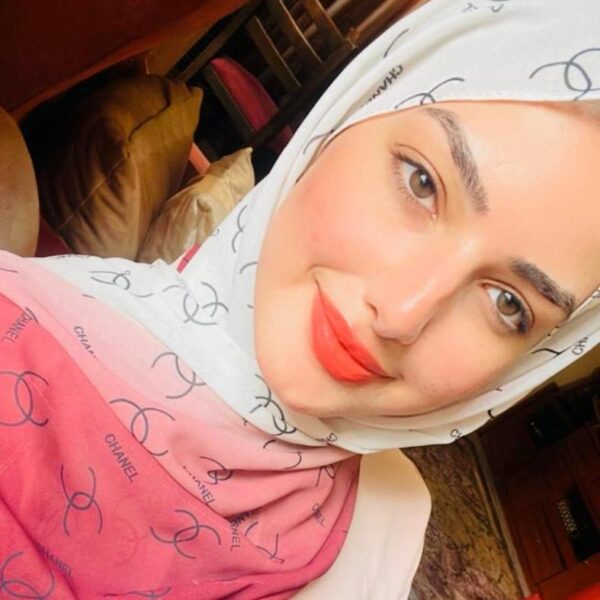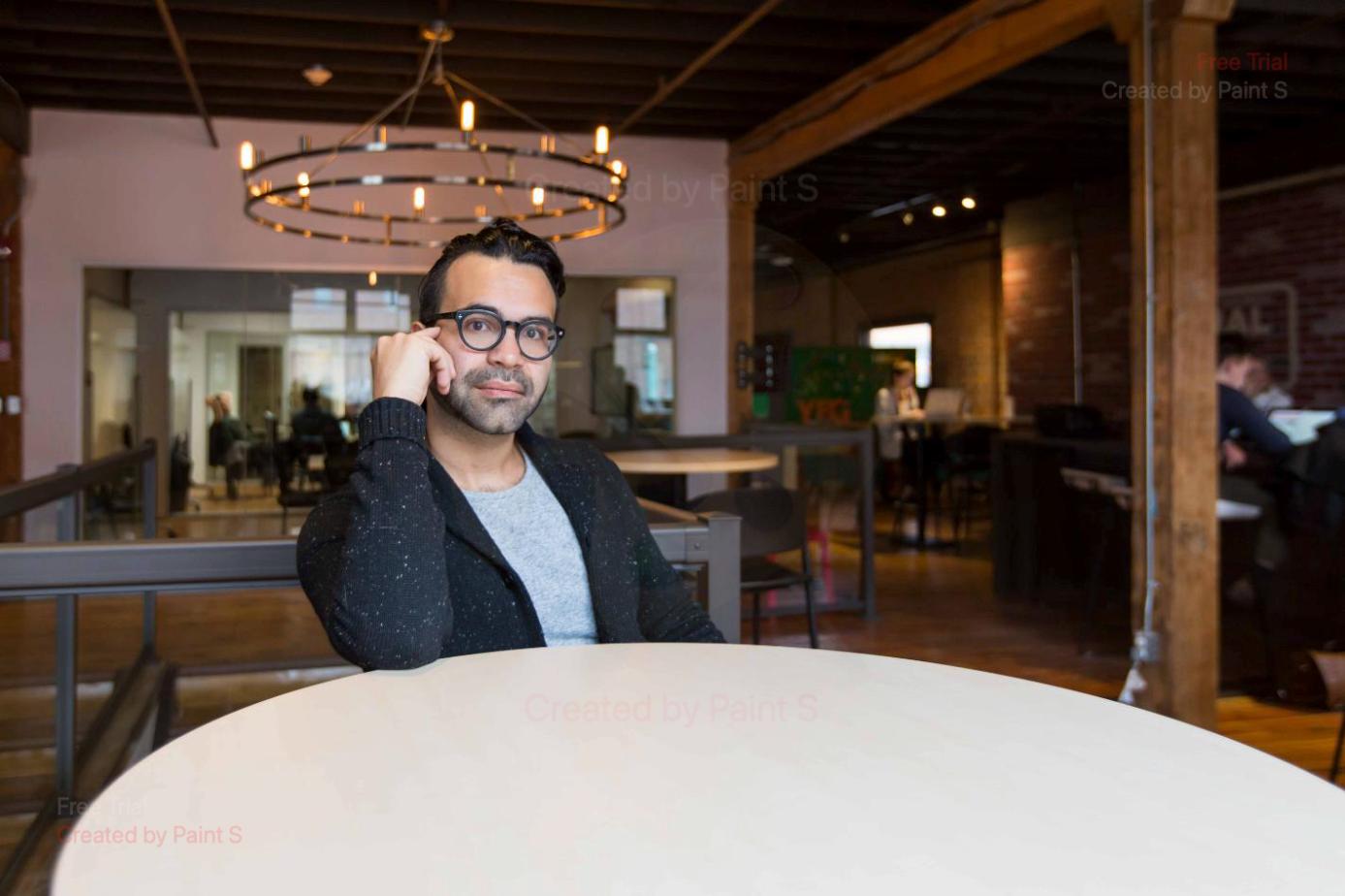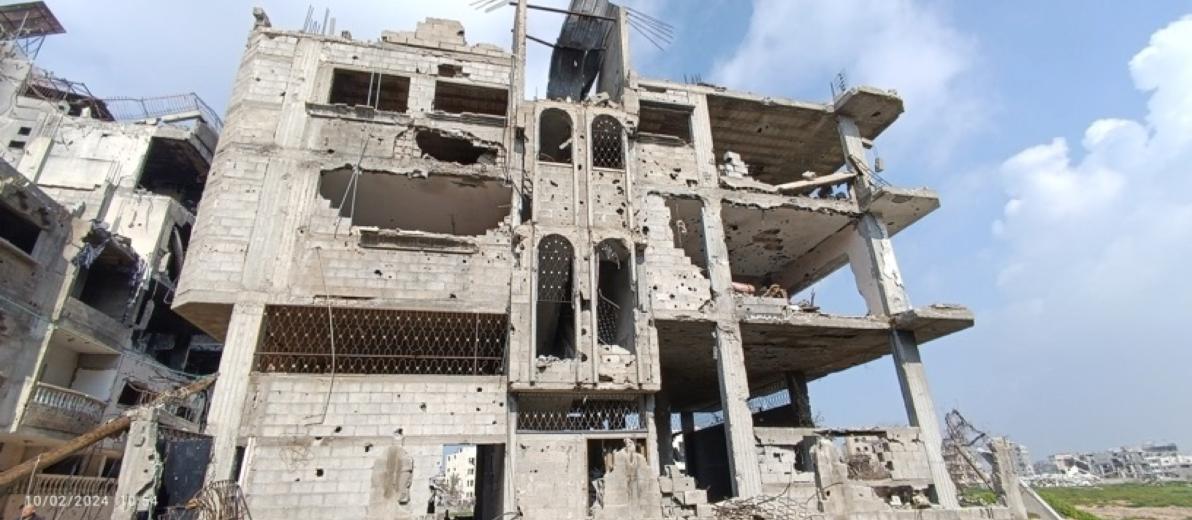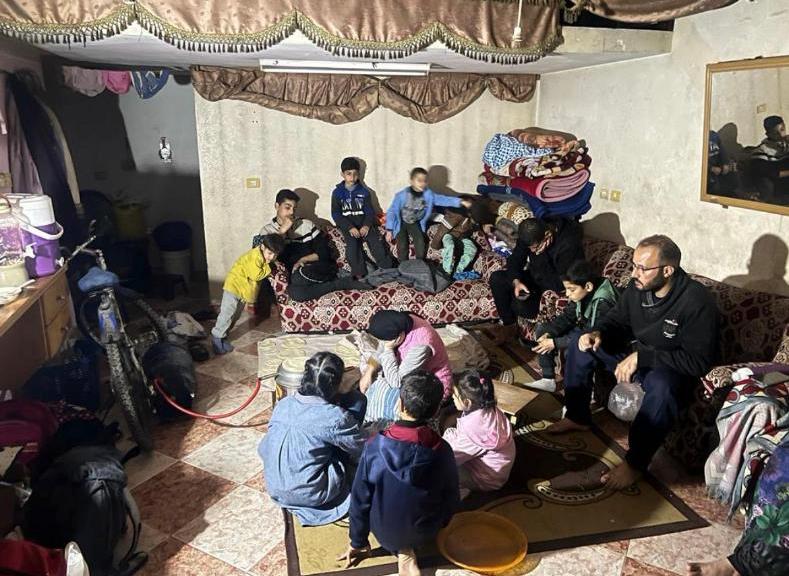
Oct. 7: The beginning
On Saturday, at 7 a.m., my family wakes up to the sound of bombing. We’d slept peacefully and reassured the previous night, unaware that today will be a turning point in our lives and the lives of every person in Gaza. We don’t know the cause or source of these explosions, only that they are close to us here in Gaza City, where I was born into a warm and loving home with a big family. We always stay together, including my four older brothers with their own families on separate floors of the same building — the only place in Gaza that has always felt safe to me. Until this very moment.
We gather in one apartment, the 30 of us glued to our phones to make sense of this incomprehensible event through breaking news and social media posts. We learn that the bombings are some kind of retaliation — but for what, we don’t understand. All we know is explosions are terribly close to us.
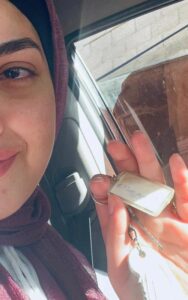
I message my brother Amged in Egypt, hoping he has valuable outside information, but he’s as ignorant as we are. He assures me everything would be fine and I’m eager to cling to his optimism. I tell myself this threat will pass — that, at the very least, we’ll return to the “natural” adversity that Gazans are so accustomed to.
But the voices of other Gazans on social media challenge my hope. They say that the airstrikes of 2021 (128 Palestinian civilians killed, 113,000 displaced); of 2014 (1,400 killed, 520,000 displaced); of 2008 (1,200 dead, 100,000 displaced) will happen again — and on a scale never seen before.
These are just the wars I remember from my 20 years of life. My heart beats painfully as I recall the fear and panic each of the previous times we left our house, unsure whether there’d be anything to return to. My mind stirs with questions: Will we flee home again? Will we be able to stick together? I lost my aunt in the 2014 war. I wonder, will I lose a loved one, again?
These memories begin to pile up and crush that small, simple feeling of optimism I thought would carry us through.
We see an evacuation warning from the Israeli occupation army online declaring Gaza City a military combat zone. “We are between the impossibility of staying and the danger of leaving,” I tell my mother.
Through tears, she asks us whether we should heed the warning, whether we will die here.
“We just have to be patient,” I say.
Oct. 8: The first exodus
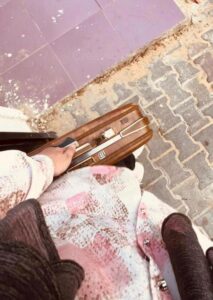
It’s become clear that the decision to leave is a matter of life and death.
In preparation to take shelter at my uncle’s house, five kilometers away in the north of Gaza City, I pack my summer clothes thinking we won’t be gone for long, but also my passport, in case of the worst. I also gather my iPad, laptop, plus a few novels close to my heart. This is not the first time we’ve had to pack and flee, but it doesn’t get any easier the more you do it.
My family and I cherished our time together in this house, celebrating birthdays and milestones. As a writer and pharmacy student, I dream of carving my own path beyond medicine, fueled by my family’s love and support. Every part of our home holds a special place in my heart. To stuff only the important things into a few bags feels like taking apart your own heart, pulling arteries and veins from ventricles and valves.
“Just bring the important things,” my mother pleads from another room. “We’ll go back home soon.”
These aren’t just things — they’re our memories and moments. Our dreams.
Feeling now that I’m running into the unknown, I break down crying, convinced this is the last time I’ll see my room, my office, our warm home. I pray they’ll still be there when we return, if we return.
Oct. 13: The second exodus
Every morning, I open my eyes hoping to see my bedroom walls, decorated with pink and purple butterflies, instead of this cold, unpainted concrete wall. I relive this nightmare of displacement with my uncle’s family for six days, until we learn that our relatives’ house has become the next military combat zone. We must immediately go south.
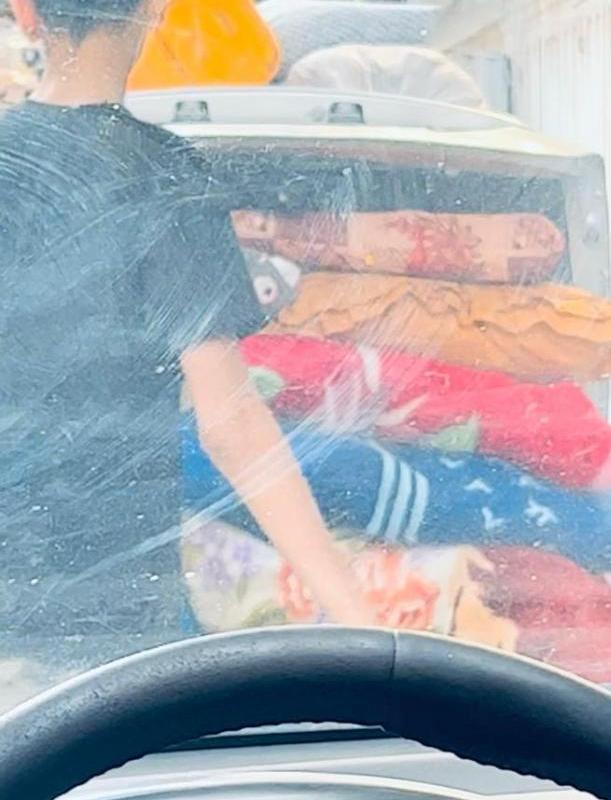
We gather our simple things for a second time and drive four kilometers to Al-Zawaida, near Wadi Gaza, to spend the night at a family friend’s. They’re wonderful and warm to us, but our family is too large for their modest home, and neither are we the only beneficiaries of their generosity. Despite their warm kindness, we must leave.
Oct. 14: The third exodus
We pack up our belongings yet again and prepare to flee further south to Hamad Town, a suburb of Khan Younis. The Israeli occupation promises that southern Gaza will be a refuge, but it’s hard to feel optimistic as the rain pours down on us. And it’s difficult to know the safest route when electricity, internet, and all transmission networks are constantly cutting in and out.
We feel isolated from the outside world, isolated from my brother in Egypt. We haven’t talked since the morning of the first bombs. I told Amged that I loved him and passed on a message to my favorite nephew in case something happened to me. I still haven’t met his wife and kids and pray to God that one day I will.
Unsure whom to rely on, we’re now guessing our way through life-threatening decisions. Is Hamad Town really safe? Will there be enough food and water? Will there be gas?
Although Hamad Town is only 20 kilometers away, we’re not sure we’ll make it on the fuel we have. We’re told there’s a gas outage, but we drive ahead anyway — the inside, roof, and sides of our cars covered in our belongings. We arrive hours later at an empty, small apartment and quickly fill it with every member of our large family.
With the will to survive and create a semblance of home, my mother gets creative. She kneads and shapes a “clay oven” out of clay and water only. We fill it with firewood and cardboard. After setting fire to the fuel, we boil coffee and tea, and for the first time in a week, enjoy a brief moment together.
Dec. 2: The fourth exodus
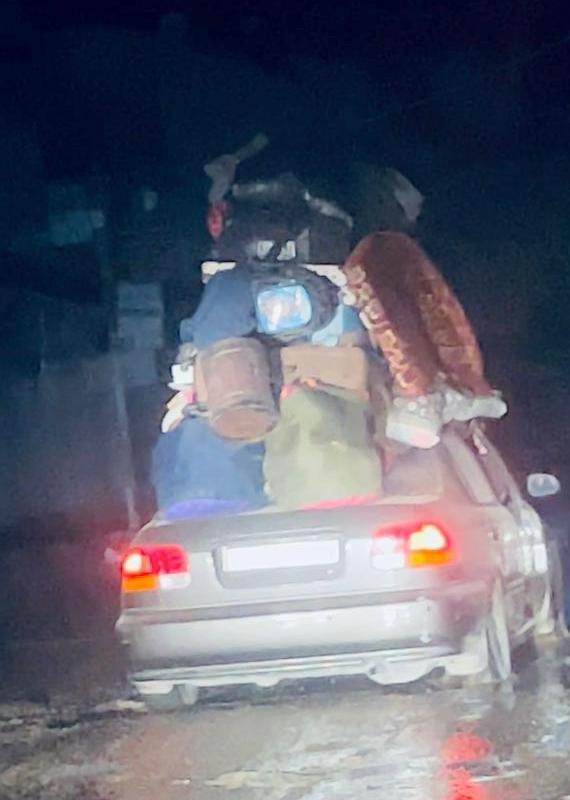
Around 4 p.m., we get an order from an IDF Facebook page to evacuate Hamad Town. This is the most difficult day since the war because, after six weeks without having to move, I’d allowed myself to feel hopeful about an end to the war and return to home.
My sense of security is shattered when my parents tell me to prepare to leave — but to where? They don’t know. As I pack my books for the fourth time, I’m reminded that my plans of becoming a pharmacist were destroyed last month when I watched a video online of Al-Azhar University turned to rubble in a controlled demolition. Just like that, my dreams, and a part of my identity, broke before my eyes.
What hurts most though is being helpless to do anything for my family when I see them in a state of utter fatigue and confusion. I carry my bag to a corner of the apartment and begin to talk to myself aloud. “Everything will be fine,” I say to the wall, believing that hearing these words will echo back at me with strength for myself and my family. For a moment, I still think it’s possible to wake up from this long, terrible nightmare, but then reality sets in. I look at my surroundings, at my family, and they look back at me as if I’m losing myself.
The plan, I’m told, is to drive slightly back north to Nuseirat in central Gaza, which we’d heard was safe now, but I quickly realize this is not the whole plan. Two of my brothers, Naeim and Loai, are going south with their families to Rafah, near the Egyptian border.
We exit into a ghost city with no beginning or end, walking toward our cars along a very dark road, towards the sounds of tanks and shells. The anticipation of separating our family becomes an unbearable pain, from which the only relief is death. I fall to the curb and cry bitterly, begging my siblings to come with us to Nuseirat.
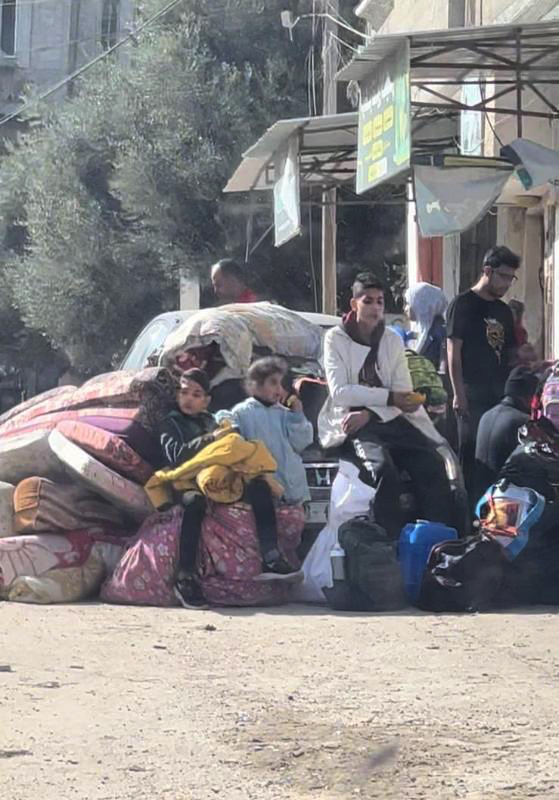
My brother Naeim sits next to me on the sidewalk. “I can’t bear it,” he says softly. “I see your tears and my mother’s tears, so I decided to go with you.” Loai has also decided to follow us, so we could all be together.
Naeim helps me to my feet and walks with me to my father’s car. There are too many bags and passengers to fit comfortably, so I climb into my mother’s lap like a scared child, riding into the unknown. She recites the Evening Remembrance quietly. “We have reached the evening and at this very time unto God belongs all sovereignty, and all praise is for God,” she whispers.
I join her in praying to God to deliver us safely, neither lost nor missing.
We arrive at a relative’s home in Nuseirat at around 9 p.m., but their home is too small and our cars too full of our belongings. The men sleep overnight in their separate vehicles to protect all that is probably left of our home. We now know that our house on the other side of Gaza was subjected to heavy bombing by the Israeli army. If any part of it remains, it’s likely unlivable. I’m beginning to accept that there’s no returning home, as there’s no home to return to.
It’s fitting then that we are in Nuseirat, an area founded as a refugee camp, inhabited by thousands of Palestinians displaced from homes and homelands for the past 75 years.
Searching for an apartment in Nuseirat to accommodate my whole family takes two days.
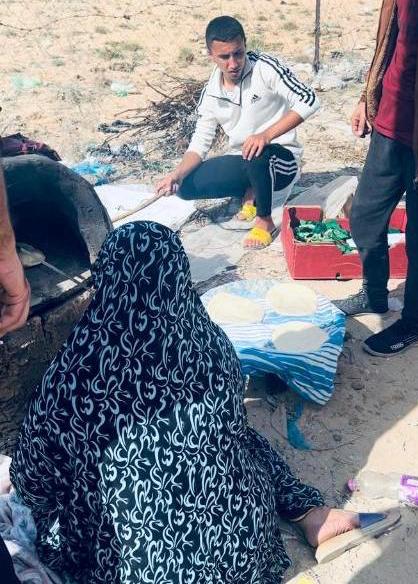
The next three weeks are full of hardship. What little we have to eat is cooked inside of a wood fire furnace. I see hunger and exhaustion in the faces of my family members as they stare into the fire with blank eyes.
Dec. 26: The fifth and sixth exoduses
The occupation dropped evacuation leaflets on us today. The center is now a combat zone. They tell us to go south to Rafah, to join the other 1.5 million displaced citizens, but we are wise to them now. Everywhere is a combat zone when you are a Palestinian in Palestine.
When my family convenes, our discussion quickly spirals into despair. Nowhere is safe, and even if it were, how long can it last? With nearly every other citizen tightly packed into this tiny region, is there any shelter left? Can we really find somewhere for all of us — 30 people and three generations?
Now there is no choice but to divide the family up. One of my brothers goes with his wife and children to an encampment area in Rafah while others go to live in a room offered by strangers. The rest of us drive through the Strip to Rafah without a plan in place.
The roads are crowded to the point that traffic itself has become dangerous. Rafah is the last place of refuge promised to us, but by now I know better than to believe any promise of safety. For nearly three months now, safety has proven itself a myth at best, as there’s no longer any distinction between escaping danger and facing it head on.
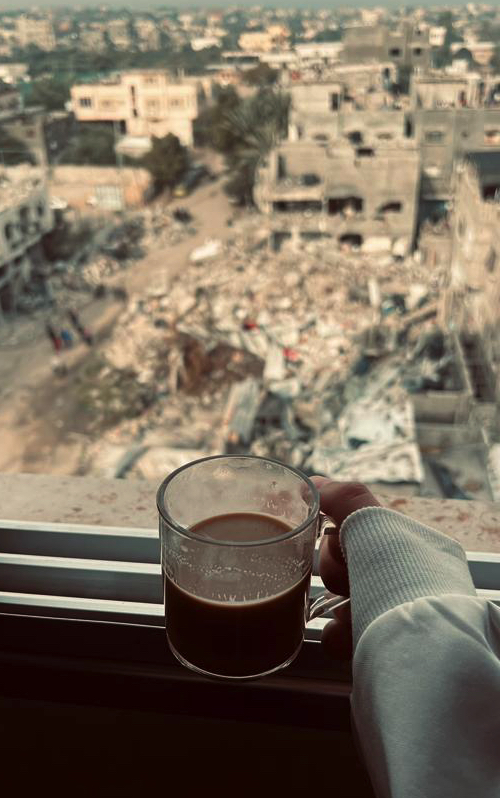
It takes us four hours to travel 20 kilometers, moving at about the speed of those walking there on the side of the road. Along the way, my brother communicated with his friend, who offered us his shop in Rafah as a place to live — five square meters for 13 men, women and children. It’s impossible. We must divide ourselves in half yet again.
Eight of us live inside this windowless warehouse with poor ventilation, struggling to see and breathe, until we hear of a barbershop.
We pack. We move. We cry. The place is a barbershop that is barely bigger, barely ventilated, and barely habitable.
March 18, 2024
Because we must keep the garage front closed for safety, the sun never enters this room — our “home” for the past 79 days. So, day and night, we exist in a dark place, not so much living as surviving.

